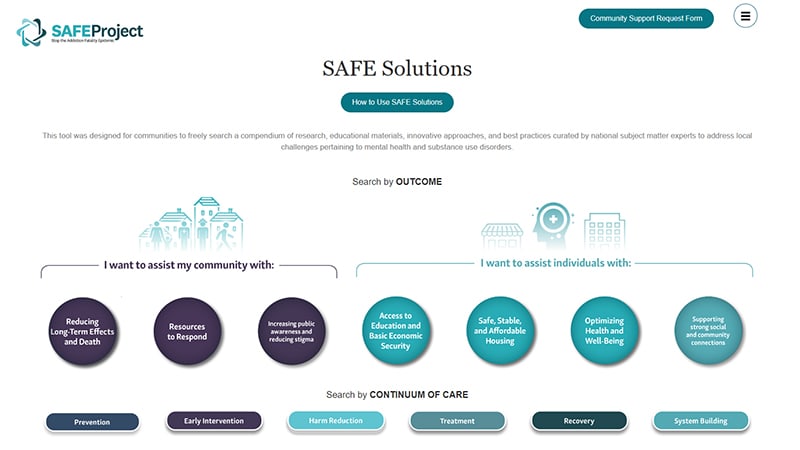Oftentimes, providing false information (such as a fake name) will disqualify protections under the GSL in many states. Corporate to the extent that the law requires you to, and assist emergency personnel with the overdose situation, and invoke your right to remain silent.
The majority of “Good Samaritan Laws” (GSL):
- Protect individuals with regard to the quantities of illicit drugs that classify use/possession, rather than trafficking/distribution;
- Do not protect from other infractions, such as previous convictions or if the individual calling currently has a warrant for their arrest;
- Solely protect individuals that call looking for help for themselves/others against use/possession cases under a certain amount of drugs;
- Require the individual calling/bystander to remain on scene for emergency personnel to arrive to be considered protected under their state’s GSL.
Select Your State
State Listings & Information
State: Alabama
Misdemeanor Infractions protected; 2015
Under state law, a person cannot be prosecuted for any misdemeanor drug-related offense or an underage alcohol offense if law enforcement learned of it only because that person was seeking help for someone else. To qualify for this immunity, the person who seeks emergency assistance must:
- Act “in good faith, upon a reasonable belief that he or she was the first to call for assistance.”
- Provide their real name when they call 911 or otherwise seek emergency assistance.
- Remain at the scene “until help arrives.”
Resources:
State: Alaska
Possession and use protected; 2014
Resources:
State: Arizona
Possession and use protected; 2023
Resources:
State: Arkansas
Protected; 2015
Resources:
State: California
Protected; 2012
Resources:
State: Colorado
Protected; 2015
Resources:
State: Connecticut
Protected; 2011
Resources:
State: Delaware
Protected; 2013
Resources:
State: Florida
Protected; 2019
Resources:
State: Georgia
Protected for “certain drugs and paraphernalia”; 2022
Resources:
State: Hawaii
Protected; 2013
Resources:
State: Idaho
Protected; 2018
Resources:
State: Illinois
Protected; 2010
Resources:
State: Indiana
Protected AND will not be persecuted by immigration or protective services; 2023
Resources:
State: Iowa
Protected; 2023
Resources:
State: Kansas
NO CIVILIAN DRUG INTERVENTION GOOD SAMARITAN LAWS
Resources:
State: Kentucky
Protected; 2015
Resources:
- https://apps.legislature.ky.gov/law/statutes/statute.aspx?id=55441
State: Louisiana
Protected; 2022
Resources:
Failure to seek assistance; 2018
A.(1) Any person at the scene of an emergency who knows that another person has suffered serious bodily injury shall, to the extent that the person can do so without danger or peril to self or others, give reasonable assistance to the injured person. Reasonable assistance includes immediately seeking or reporting the need for medical assistance from an appropriate authority.
Resources:
State: Maine
Protected from ALL (non-violent) drug crimes; 2022
Arrest and prosecution for most non-violent crimes, including all drug crimes;
Resources:
State: Maryland
Protected; 2013
The purpose of the law is to encourage any person, regardless of age, who sees a person (or people) having a medical emergency brought on by drugs and/or alcohol, to seek medical assistance by calling 911, without the fear of arrest or prosecution for:
- Possessing or using a controlled dangerous substance
- Possessing or using drug paraphernalia
- Providing alcohol to minors
Calling 911 will NOT affect your parole or probation status.
The Good Samaritan Law also protects the person (or people) experiencing the emergency medical overdose from the same.
The law does not protect persons witnessing the medical emergency if they’re not helping with the medical emergency.
The law will not protect against arrest for open warrants or other crimes not listed above.
Resources:
State: Massachusetts
Resources:
State: Michigan
Protected; 2016
Resources:
State: Minnesota
Protected; 2022
Duty to assist: Duty to assist. A person at the scene of an emergency who knows that another person is exposed to or has suffered grave physical harm shall, to the extent that the person can do so without danger or peril to self or others, give reasonable assistance to the exposed person. Reasonable assistance may include obtaining or attempting to obtain aid from law enforcement or medical personnel. A person who violates this subdivision is guilty of a petty misdemeanor.
General immunity from liability. (a) A person who, without compensation or the expectation of compensation, renders emergency care, advice, or assistance at the scene of an emergency or during transit to a location where professional medical care can be rendered, is not liable for any civil damages as a result of acts or omissions by that person in rendering the emergency care, advice, or assistance, unless the person acts in a willful and wanton or reckless manner in providing the care, advice, or assistance. This subdivision does not apply to a person rendering emergency care, advice, or assistance during the course of regular employment, and receiving compensation or expecting to receive compensation for rendering the care, advice, or assistance.
Resources:
State: Mississippi
Protected ONLY for use/possession, NOT for distribution/trafficking; 2023
Resources:
State: Missouri
Protected; 2017
This law provides immunity from: Possession of a controlled substance (RSMO 579.015). Possession of drug paraphernalia (RSMO 579.074). Possession of an imitation controlled substance (RSMO 579.078). Keeping or maintaining a public nuisance (RSMO 579.105). Sale of alcohol to a minor (RSMO 311.310). Possession of an altered ID (RSMO 311.320). Purchase or possession of alcohol by a minor (RSMO 311.325). Violation of a restraining order. Violation of probation or parole.
Resources:
State: Montana
Protected; 2021
Resources:
State: Nebraska
Protected; 2017
Resources:
- https://nebraskalegislature.gov/laws/statutes.php?statute=28-472
State: Nevada
Protected; 2017
Resources:
- https://www.leg.state.nv.us/nrs/NRS-453C.html
State: New Hampshire
Protected (REGARDLESS OF AGE); 2015
Resources:
State: New Jersey
Protected; 2013
Resources:
- https://www.nj.gov/humanservices/news/press/2013/approved/20130709.html
State: New Mexico
Protected; 2021
Resources:
State: New York
Protected; 2016
The law DOES NOT protect YOU from the following: • A1 felony possession of a controlled substance (8 ounces or more); • Sale or intent to sell controlled substances; • Open warrants for your arrest; and • Violation of probation or parole.
The law DOES protect YOU from the following: • Possessing controlled substances up to and including A2 felony offenses (anything under 8 ounces); • Possessing alcohol, where underage drinking is involved; • Possessing marijuana (any quantity); • Possessing drug paraphernalia; and • Sharing drugs
Resources:
State: North Carolina
Protected; 2015
Resources:
State: North Dakota
Protected for UP TO 3 PEOPLE OVERDOSING AT ONE TIME/caller must remain on scene; 2020
Resources:
State: Ohio
Protected; 2016
Resources:
State: Oklahoma
Protected under circumstances; 2018
Must comply with and provide proper information to emergency personnel and remain on the scene to be protected.
Resources:
State: Oregon
Protected; 2022
Cannot be arrested/prosecuted from:
- Outstanding warrant because of drug use or possession
- Possessing drugs or drug paraphernalia
- Being in a place where drugs are used
- Violating probation or parole because of drug use or possession
Resources:
State: Pennsylvania
Protected; 2014
The criteria for such immunity includes the following
- The individual must report the incident to 9-1-1, law enforcement or an emergency official
- Individual must give authorities identifying information
- The individual must stay with the overdose patient until emergency assistance arrives
- The law does NOT grant immunity to those involved in the delivery or distribution of drugs
Resources:
State: Rhode Island
Protected; 2016 • Failure to assist; 2012
Resources:
- https://webserver.rilegislature.gov/Statutes/
- https://law.justia.com/codes/rhode-island/2012/title-11/chapter-11-56/chapter-11-56-1
State: South Carolina
Protected; 2017
Must use real name and “fully cooperate with emergency personnel”
Resources:
State: South Dakota
Protected; 2022
Resources:
State: Tennessee
Protected; 2015
Resources:
State: Texas
Protected under SPECIFIC CRITERIA; 2021
- “…small amounts of controlled substances”
- Remained on scene for emergency personnel to arrive
- Fully cooperate with emergency personnel
- Must have been the first person to request for/call emergency personnel
Resources:
State: Utah
ONLY MITIGATING FACTOR, NOT FULLY PROTECTED; 2020
Must cooperate and remain on scene
Resources:
State: Vermont
Protected; 1987
Resources:
Failure to assist;
Resources:
State: Virginia
Protected; 2015
Remain on scene or nearby
Resources:
State: Washington
Protected; 2015
Remain on scene or nearby
Resources:
State: West Virginia
PROTECTED UNDER CIRCUMSTANCES; 2022
- Individuals with in possession of a certain amount of drugs protected, NOT if they have used said drugs
- Must remain on scene for emergency personnel
- Must cooperate with emergency personnel
- A person who, in good faith and in a timely manner, seeks medical assistance for someone or for himself or herself who is experiencing an overdose may not be cited, arrested, or prosecuted for a violation of:
- (1) §60-3-9. Drinking in public places; possessing of alcoholic liquor;
- (2) §60-3-22a. Enabling consumption of alcohol by someone under age twenty-one.
- (3) §60A-4-401 (c) and (d). Delivering or possessing a controlled substance.
- (4) §60A-4-403a. Prohibiting the possession or selling of illegal drug paraphernalia;
- (5) §60A-4-406. Distributing to persons under the age of eighteen by persons over the age of twenty-one; distributing by persons eighteen or over in or on, or within one thousand feet of, school or college.
Resources:
State: Wisconsin
Strictly protected against possession of drugs and paraphernalia alone; 2021
Resources:
State: Wyoming
NO DRUG AMNESTY GOOD SAMARITAN LAWS IN WYOMING
Resources:
- Drug Misuse: Most States Have Good Samaritan Laws and Research Indicates They May Have Positive Effects
- SENATE FILE NO. SF0042
Additional Location: Washington D.C.
Protected; 2013
Resources:


